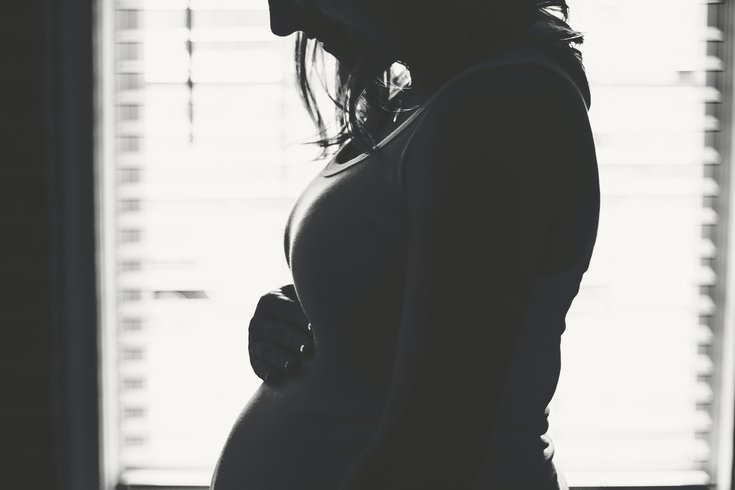
January 17, 2023
 Joey Thompson/Unsplash
Joey Thompson/Unsplash
So far data suggests that not only does pregnancy make women's bodies more vulnerable to severe illness from SARS-CoV-2, it also increases their risk of common pregnancy complications
Even before the pandemic hit the U.S., the country was facing a maternal health crisis, Now, health experts say COVID-19 has only exacerbated it.
New data emphasizes that pregnant women with COVID-19 are more likely to die during pregnancy than those without the infection.
The U.S. has the highest maternal mortality rate among wealthy, industrialized countries. In 2019, there were 20.1 deaths for every 100,000 live births and that increased to 23.8 deaths in 2020, according to the Centers for Disease Control and Prevention. France, the industrialized nation with second-highest maternal mortality, recorded 7.8 deaths for every 100,000 births.
The reasons for such a high loss of life are complex. Research has suggested that the lack of universal health care and high out-of-pocket costs, which lead many Americans to skip doctor visits, are contributing factors. So is the shortage of maternal health providers and midwives in the country.
Persisting racial disparities also play a role. Black and Native American women are two to three times more likely to die from pregnancy-related causes. Meanwhile, pregnant women who live in rural areas with limited access to maternity care are 60% more likely to die before, during or after giving birth.
Researchers say that COVID-19 is also making pregnant women more vulnerable to complications. The U.S. Government Accountability Office reports that maternal deaths increased during the pandemic compared to 2018 and 2019. COVID-19 contributed to 25% of maternal deaths in 2020 and 2021.
The pandemic also worsened maternal health disparities such as access to care and transportation. Disparities in other adverse outcomes like preterm and low birthweight births have also persisted during the pandemic, with Black women experiencing higher rates than other women.
Since the beginning of the pandemic, scientists have been trying to understand how COVID-19 affects pregnant women. While there is still much to learn, so far data suggests that not only does pregnancy make women's bodies more vulnerable to severe illness from SARS-CoV-2, it also increases their risk of common pregnancy complications. Both pregnancy and COVID-19 can increase a women's risk of blood clots, for instance.
During pregnancy, a woman's body, particularly her lungs and cardiovascular system, is already under extra stress, making it easier for the virus to get a stronger foothold, experts say.
A recent review of 12 studies in the journal BMJ Global Health underscores the increased vulnerability of pregnant women who contract COVID-19. The studies, which were conducted in many different countries including the U.S., included data on more than 13,000 pregnant women – approximately 2,000 of whom who had confirmed or probable cases of COVID-19. The health outcomes of women and their babies infected with the virus were compared to those of women and babies who tested negative for the virus at the time of birth.
Overall, about 3% of the pregnant women with COVID-19 needed intensive care and about 4% required any kind of critical care. These were higher percentages than those found among pregnant women who did not have a COVID-19 infection.
Pregnant women with COVID-19 were almost four times more likely to be admitted to an ICU and were 15 times more likely to be ventilated. They also had 23 times more risk of developing pneumonia and were seven times more likely to die. These women also faced higher risk of common pregnancy complications such as preeclampsia, blood clots and high blood pressure.
Their babies had a higher risk for preterm birth and low birth weight, too. While other studies have shown an increased risk of stillbirth, this study did not.
“This study provides the most comprehensive evidence to date suggesting that COVID-19 is a threat during pregnancy,” Emily R. Smith, an assistant professor of global health at the George Washington University Milken Institute School of Public Health and lead author of the study, said in a statement. “Our findings underscore the importance of COVID-19 vaccination for all women of childbearing age.”
Past research has also found similar results. CDC data from June 2020 indicated that pregnant women with COVID-19 were 50% more likely to end up in intensive care than non-pregnant women with COVID-19. The pregnant women were also 70% more likely to need ventilators.
In addition, a National Institutes of Health study which included almost 2,400 pregnant women with COVID-19 found that pregnant women with a moderate to severe infection were more likely to have a cesarean delivery, to deliver preterm, to die around the time of birth or to experience serious illness from hypertensive disorders of pregnancy like preeclampsia, postpartum hemorrhage or non-COVID-19 infection. They were also more likely to lose the pregnancy, or have an infant die within the first few months of life.
One of the limitations of the latest review is that the studies were all conducted early in the pandemic, when most people were still unvaccinated. According to the CDC, the latest numbers say that roughly 72% of pregnant women in the U.S. now have had their primary series of COVID-19 vaccines. Today it is also more likely for pregnant women to have a previous COVID-19 infection, which enhances their immune memory against the virus. Only 19% of pregnant women had the updated boosters, though.
Health experts continue to emphasize the importance of vaccination against COVID-19 for pregnant people, who should take precautions to avoid exposure to the virus.